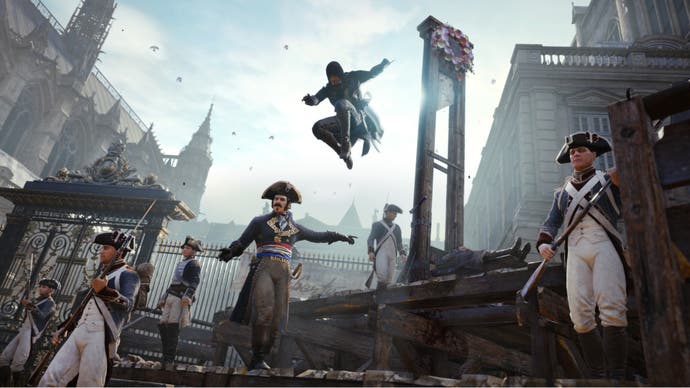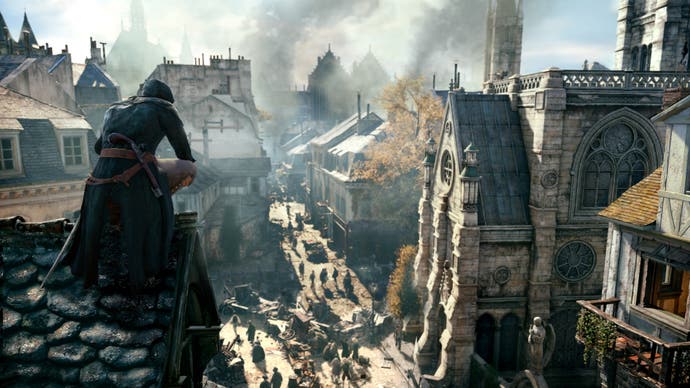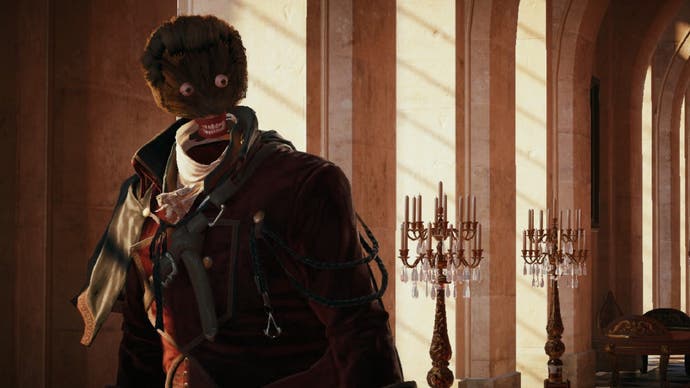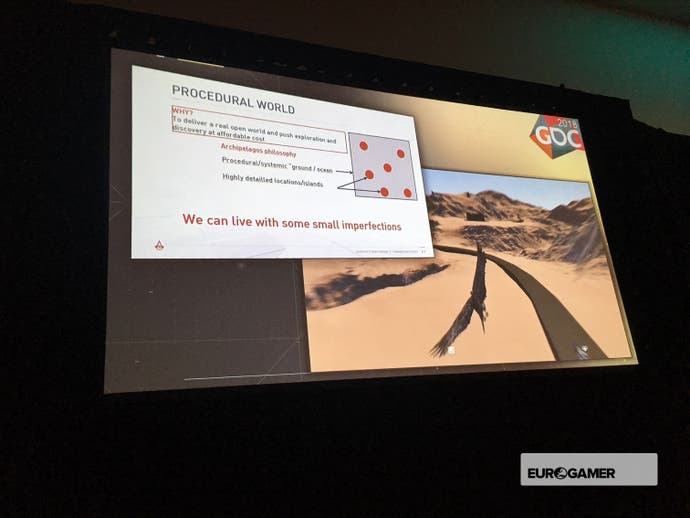Ubisoft on what created the "perfect storm" behind Assassin's Creed Unity
"We probably flew too close to the sun."
Ubisoft delved into the "perfect conditions for the perfect storm" behind 2014's Assassin's Creed Unity's launch issues.
As part of the talk '10 Years of Evolution of the Assassin's Creed Brand' at GDC 2018, creative director Jean Guesdon explained how Ubisoft iterated on each game as it built the franchise.
Unity started development in 2011, after work on Brotherhood had finished, and was designed to be the first real next-gen game for then upcoming consoles PS4 and Xbox One.

Guesdon said there were similarities between Unity and the very first Assassin's Creed as a result of the publisher prioritising technology over content.
"If you remember Assassin's Creed 1, it had some similarities, actually - because there was a lot of work being done at a very low level in terms of tech," he told the audience at the talk, attended by Eurogamer.
"The engine was massively revamped... still today, Unity is still one of the best looking games ever.
"But at the same time, we moved to a one-to-one scale building, that had an impact on navigation, so the gameplay was impacted, [and we're] not even talking about the co-op development.
"We fell again into this trap of working a lot on the tech, and not allowing enough [time for] the teams to create the content to create something new.

"In the end, that's the way I see it. We created the perfect conditions for the perfect storm. We had a game that was wonderful in terms of art, but that was not renewing enough of the experience."
He pointed to the screenshot of an in-game map full of icons as a representation of that problem. There were other issues too, such as a confusing Initiates system that required you to play a companion app to unlock content, which was later patched out of the game.
"On top of that, you get this kind of cherry," Guesdon said, with a screenshot of the now infamous 'no face' bug. "By the way, I need to [say], it was only one graphics card!

"The game suffered from all this," he added. "Even if you played it today with the fixes, it's still a very beautiful and very good game. But in short, we probably flew too close to the sun and we were a bit overcome.
"And that is why Syndicate had to focus on quality, which the team did very, very well."
Guesdon also touched on the challenges behind creating the latest entry Assassin's Creed Origins, released last year. It was an opportunity for a "big, big refresh" for Ubisoft, all while respecting the core tenets of the series.
The team built the game around four priorities - mastering the craft of open world creation, striking a perfect balance between story and players, making it a non-skippable episode for the game's universe, and making it a connected game, even if it didn't have co-operative or competitive play.

In the end, it meant redefining the way the player would understand and interact with the world - with the drone-like eagle view used as an example - and keeping meaningful narratives within systems.
"It was a cultural shift for the developers as much as a technological one - we should focus on the experience and not the scripting and coding. Players don't care about the code, just their experience," Guesdon said.
"We needed to understand losing a bit of control would bring more fun to the players."
The approach worked, with Origins receiving good reviews and strong sales, doubling that of 2015's Syndicate at launch.

